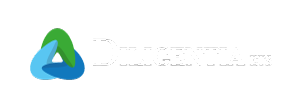
An interview with Cesare Saccani, President, DILIGENTIA ETS
by Mimosa Martini
Both at international and national level, there is a clear move towards changing the approach to our lifestyle, to be more selective in the choice of the products we use and to pay more attention to the manufacturers of the same. What is really happening and which scenario is building up in front of us?
First of all, I wish to highlight a historical event of a few days back: Italy added the protection of environment, biodiveristy and ecosystems (including animal protection) to the principles in the Italian Republic Constitution. Furthermore, art. 41 introduced the obligation for business enterprises to carry out their economic activity without affecting social utility, public health and environment. Such institutional changes are perfectly in line with the UN Sustainable Development Goals and the guidelines issued by international organizations (OECD).
Since a few years stakeholders are pushing for companies to provide reliable and credible information on their exposure level to non-financial risks, also known as ESG Risks (Environmental, Social, Governance). Furthermore, it should not be overlooked the fact that the younger generations of consumers and clients are more and more conscious in their consuming choices, being more attentive to social responsibility and sustainabilityvalues. The finance industry (investors, banks, insurances) asks for an evergrowing attention to the level of exposure to non-financial risks. The present economic framework is characterised by a plethora of supply chains showing significant risk of events that might compromise the company reputation and negatively affect the trust of investors and clients.
At the foundation of such development, particularly at European level, there is a regulatory framework with new provisions for Corporate Sustainability Reporting to be certified by an independent third party and for a Due Diligence on the non-financial risks of all the suppliers along the supply chain.
Diligentia moves along such international trends, to accelerate the implementation of new approaches by the business actors.
President, please tell us about the intents and objectives that have led to the birth of Diligentia?
The Association was founded with the objective of promoting Social Corporate Responsibility and Sustainable development and to identify and enhance all those actions that could result in excellence on all the ESG aspects: governance, social, safety, environment and business ethic.
A distinctive factor of the Association is that it is aimed exclusively at entrepreneurs and professionals, considered to be the main actors of change. Also, Diligentia operates on an international scale, as the the supply chains get more and more extended. It promotes criterias, test methodologies and valuation processes compliant with international norms and guidelines, thus guaranteeing measurable, comparable and transparent results.
Last, it manages Conformity Assessment Schemes aimed at recognising the best companies and professionals on the basis of rigorous and transparent criterias and at promoting the virtuous companies at an international level.
The Association is also engaged in countering the so called “greenwashing” by advocating the conformity to international norms and the application of more rigorous and reliable control systems by the subjects issuing labels and certifications on corporate responsibility and sustainability.
How about the name Diligentia?
The latin term “Diligentia” literally means “care”, “attention”. Extracted from the locution “diligentia quam suis”, it entered the language of the Roman law and it is still present in many national legal systems. In a famous forensic dispute between Nerva and Proculo (1st century A.D.) the first supported the idea that whenever a person is entrusted with the custody of any good, he should treat it with the same care and diligence he would normally apply to his own belongings: the lower the care, the greater the fault. Thinking of it, the term is a perfect metaphor for the association mission: to provide to whatever we have received in “custody” from others (the environment, the safety of a person, the human rights) the same care and attention we would dedicate to our own goods, to then transfer them to the future generations.
What would be the Association view to the ongoing changes, in Italy as well as in other countries? Whom does the Association call on to?
Diligentia calls on mainly to those enterpreneurs and professionals – in Italy and anywhere in the world – sharing the urgency to modify the economic development paradigm and wishing to act through concrete actions and not through operations that are solely marketing gigs and greenwashing.
In primis, Diligentia promotes and manages assessment programs and schemes compliant with internationally recognized principles, guidelines and norms, founded on the principle of the accreditation of third party independent bodies.
It also promotes and manages credentialing systms to certify the competences of consultants, assessors and technical experts in the field of social responsibility and ESG risks evaluation.
Is there any sector requiring more than other to change its business vision?
Broadly speaking, all “labour intensive” sectors having long and internationally segmented supply chains (such as textile, apparel and footwear, raw material, food products) can present problems and social and environment risks, particulary when the manufacturing units are dislocated in developing countries carachterised by a higher economic growth urgency.
Though we cannot forget that in Italy itself there is a average death rate of two people per day due to work related accidents and exploitation and discrimination is quite rampant. Many companies are still handling their hazardous waste with too much ease and consequent damages to the environment or do not pay much attention to the GHG emission having an high impact on climate change.
Last, let us not forget that many organisations use ethic declarations and certifications of products which are not verified and not subject to any external control (greenwashing). Such problems can be found in all sectors, in north or south, in large, medium and small companies.
We feel the urgency to take some concrect steps.
In your view, which are the 5 actions that a company should immediately start implementing, let us within the year?
The actions that every company should start implementing are few and positively feasible. The first 5, those absolutely necessary, are:
1) To adopt methodical and effective approaches in assessing the stakesholders requirements.
2) To verify the alignment and integration between Stakeholder engagement, materiality analysis, risk management and control systems.
3) To implement a risk identification and evaluation system covering all the non financial aspects (governance, social, safety, environment and business ethics).
4) To implement plans, supported by suitable resources, aiming at constantly mitigating risks on all non-financial aspects and to adopt policies and approaches based on Due Diligence processese all along the supply chains.
5) To accellerate the adoption of ethical labels (based on accredited schemes and programs) and the arrangement of Corporate Sustainability Reporting systems compliant with the EU directives, so to be ready at the time of introduction of upcoming legal obligations.


Recent Comments